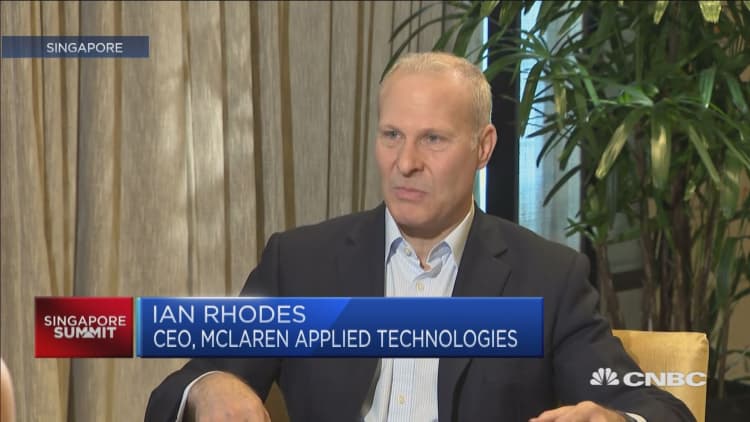
Sunday's Singapore Grand Prix final saw tremendous quantities of real-time data transmitted to factories all over the world in what's seen as a major technological breakthrough.
During the 90-minute race, there were "10 terrabytes of data float through the system, which makes it the biggest science project on the planet for that period of time, eclipsing even the human genome project," Ian Rhodes, CEO of McLaren Applied Technologies, said ahead of the race.
Speaking on the sidelines of the Singapore Summit on Saturday, Rhodes explained how his company provides the electronics backbone for the entire race series.
Data coming from the cars racing around the island-nation's city-center goes through engine control units that Rhodes' firm supplies to every team. Those units essentially end up becoming the data hub, he explained.
The data from the control units are sent in real-time to the track-side, pit lane and international factories, where mission control departments will utilize the information to help race teams improve performance and strategy, Rhodes said.
For example, mission control can figure out what's going on in other cars, when drivers should change tires, and when engine power should be increased or reduced, Rhodes said.
"Each mission control unit will probably run 300,000 simulations — live — during the race to constantly advise their team on what to do next," he said Saturday.
Essential to building the world's fastest vehicles, Formula One technology has been sought-after by various global industries and is closely monitored by racing fans who attend the annual Singapore event, which was Asia's first-ever street circuit.
The future of the race on the island nation was hotly contested over the past year amid declining attendance rates, but officials recently announced a four-year extension.
Aside from the data experiment, which is aimed at enhancing the human ability to make better decisions, aerodynamic designs and the relationship between software efficiency and a car's cooling systems are some of F1's other technological advancements, Rhodes said.


